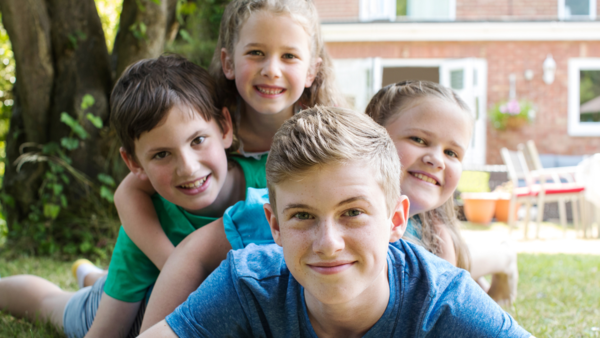The eldest child
The eldest child often finds themselves in a position of responsibility and leadership within the family.As the first to arrive, they typically receive more focused attention and resources from their parents. This early investment can lead to the development of traits such as diligence, reliability, and a strong drive for achievement.
Firstborns tend to be more ambitious. This may be due to the higher expectations placed on them, as they are often seen as role models for their younger siblings. A study published in the Journal of Research in Personality highlights that firstborns are more likely to exhibit leadership qualities and a strong sense of duty, reflecting the significant role they play within the family structure.

Image: Canva
The middle child
Middle children often occupy a unique position, balancing the attention and achievements of their older and younger siblings. This can lead them to develop strong negotiation skills and a sense of diplomacy, as they strive to carve out their own identity within the family.
Middle children are typically more adaptable, sociable, and cooperative. Their position in the family often requires them to mediate conflicts and build bridges, building an understanding of different perspectives. This adaptability is supported by research published in Personality and Individual Differences, which suggests that middle children are often more flexible and sociable compared to their siblings.
The youngest child
Youngest children usually enjoy a more relaxed upbringing, as parents may be more experienced and less anxious by the time their last child is born. This more laid-back parenting style can allow the youngest to explore their creativity and develop a more carefree attitude.
The youngest children are often outgoing, charming, and inclined towards seeking attention. They tend to be more adventurous and open to new experiences, likely due to the more lenient rules and lower expectations placed upon them. Findings from studies on birth order and personality suggest that the youngest siblings are more prone to risk-taking and creativity, enjoying a freer role within the family dynamics.
The only child
Only children grow up without siblings, which can lead to a unique set of characteristics. They often receive undivided attention from their parents, which can contribute to higher levels of self-esteem and maturity. Without siblings to compete with, they may develop a strong sense of independence and self-sufficiency.
Only children tend to be more mature and achievement-oriented. They often have strong verbal skills and a high level of confidence. Studies published in the Journal of Child Psychology and Psychiatry show that only children often display higher academic performance and stronger social skills compared to children with siblings. They are used to interacting more with adults, which can lead to advanced communication skills and a mature perspective on life.
Ghosting and its impact on mental health

